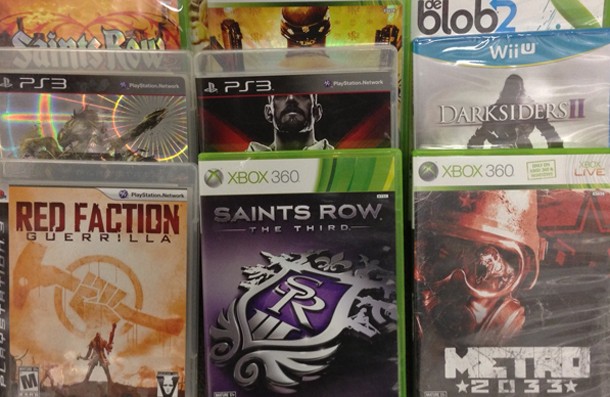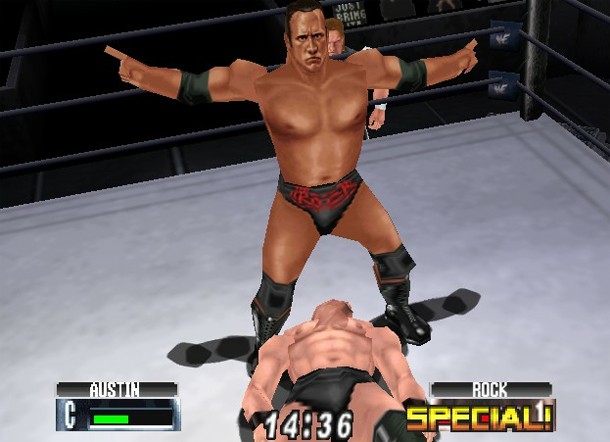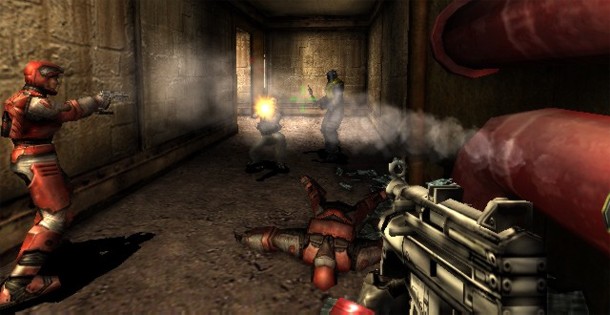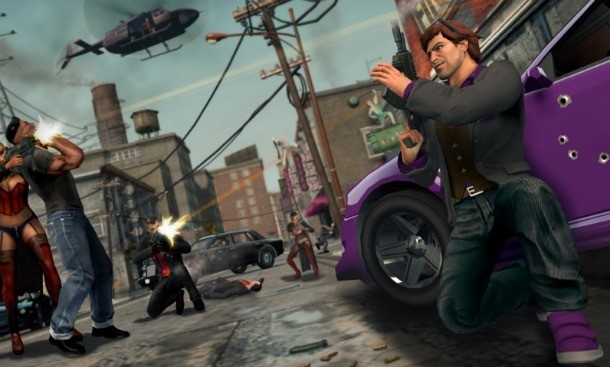Please support Game Informer. Print magazine subscriptions are less than $2 per issue
THQ Died At The Top Of Its Game

When a company is in its death throes, it usually comes after a prolonged period of sub-par performance. THQ is an interesting story to look at from a quality perspective. Looking solely at the products that it has developed over the years, I noticed that the publisher was putting out titles of increasing quality from the NES all the way up until its recent trouble. THQ may be dead and gone, but I wanted to take a look at how it progressed over several console generations.

1990 - 1995
THQ started putting out games late in the NES lifecycle. Most of their offerings at the time (and moving through the 16-bit era) were based on licenses such as Ren & Stimpy, Where’s Waldo?, Rocky & Bullwinkle, Wayne’s World, and two Home Alone games. As was the case with most licensed games from the era, these seemed to rely more on name recognition than a quality gaming experience to sell copies.

1996 - 2000
During the late ‘90s, THQ expanded its licensed focus to include wrestling titles. As professional wrestling was in its biggest boom period ever, the AKI-developed WCW (and later WWF) games proved to be big successes for the publisher. While these were the most high profile offerings from THQ at the time, the publisher branched out a bit by experimenting with other licenses such as MTV Sports, Ghost in the Shell, Rugrats, Power Rangers, and Disney films such as The Hunchback of Notre Dame, Hercules, and Mulan. These licenses didn’t always lead to great games, but THQ began building its brand and becoming a recognized name during this period.

2001 - 2005
During the early 2000s, THQ went absolutely bonkers with licensed games for just about every system imaginable. Britney Spears, Spongebob SquarePants, Scooby Doo, Blue’s Clues, Evil Dead, Indiana Jones, Hot Wheels, Buffy the Vampire Slayer, The Punisher, Constantine, and Bratz were all recognizable properties to add to the steady stream of WWE, Disney, and Nickelodeon games. THQ still had an obvious focus on licenses, but this is also the period in which the publisher began experimenting with original IP. Games like Red Faction, Summoner, Destroy All Humans!, Dark Summit, Tak and the Power of Juju, and Full Spectrum Warrior were released to varying critical and commercial success, but they indicated a willingness on THQ’s part to try original ideas.

2006 - 2013
These final years of THQ may have been what put the company under financially, but there’s no doubt that they were its greatest in terms of creativity. While the flow of licensed games continued stronger than ever, it was the company’s original offerings that drew the most attention from gamers. Saints Row released alongside the Xbox 360, offering an open-world criminal adventure that grew into its own wacky, distinct, and successful brand over the next two installments. Red Faction made a successful return in the form of Guerrilla, presenting gamers with an insanely destructible alien world. Darksiders scratched an obvious itch by merging God of War style combat with Zelda-inspired dungeons. De Blob was a charming and beautiful platformer that unfortunately struggled with attaining commercial success. 50 Cent: Blood on the Sand featured a ridiculous and risky premise and somehow managed to be a silly, fun co-op experience. Console trivia games were revived with the solid return of You Don’t Know Jack. Even the annual wrestling series was injected with new life thanks to a stellar WWE ‘13 that served as a love letter to the industry’s past.
Looking at THQ’s history from the company’s birth to its recent demise, there’s no question that they went out on the top of their creative game. What started as a home for games based on existing properties turned into a publisher that wasn’t afraid to take risks with new ideas. Near the end, THQ managed to introduce new ideas (Saints Row, de Blob), revive old ones (Red Faction, WWE, YDKJ), and merge genres (Darksiders). If financial success was predicated on creative improvement, THQ as a company would be stronger than ever in 2013.










